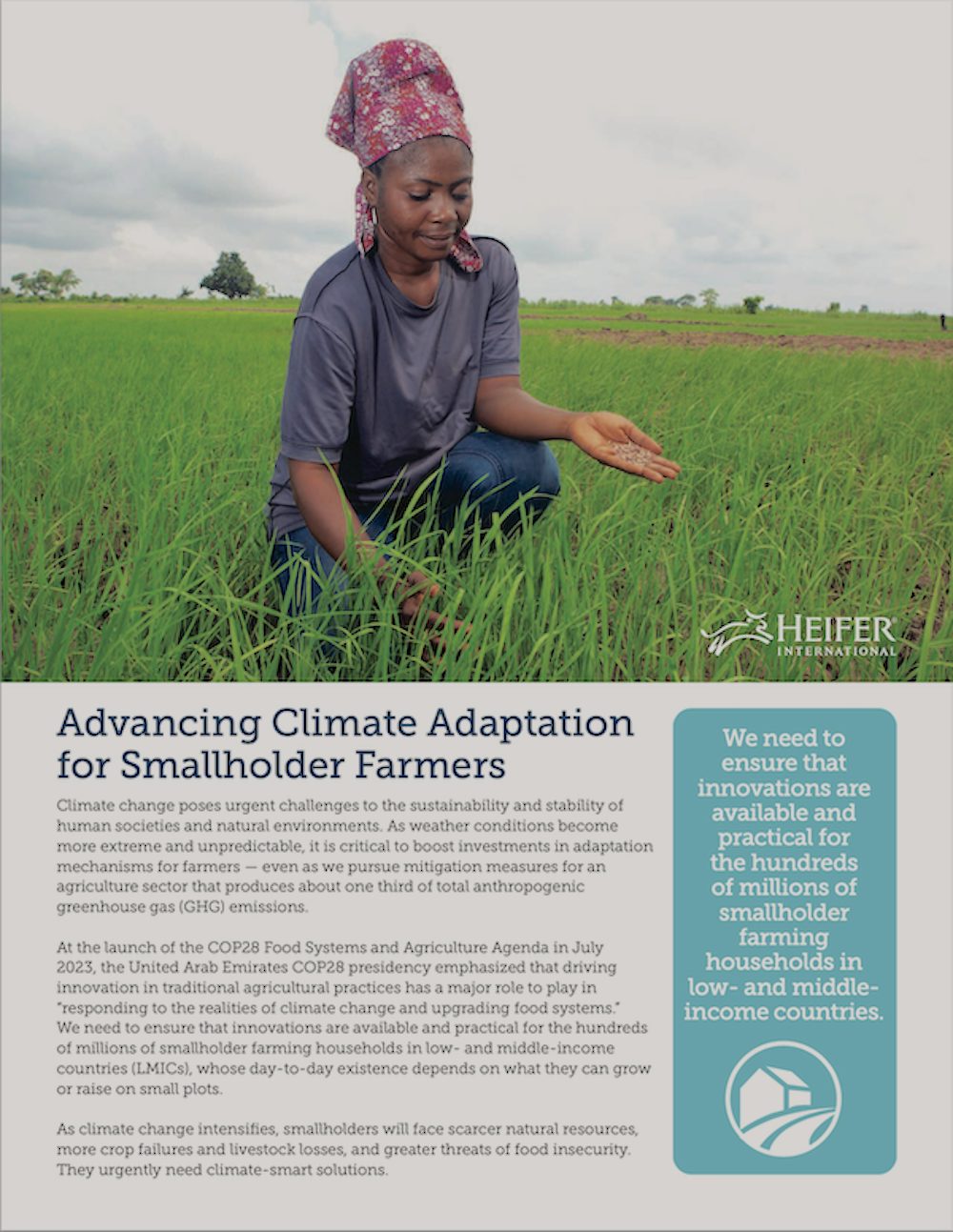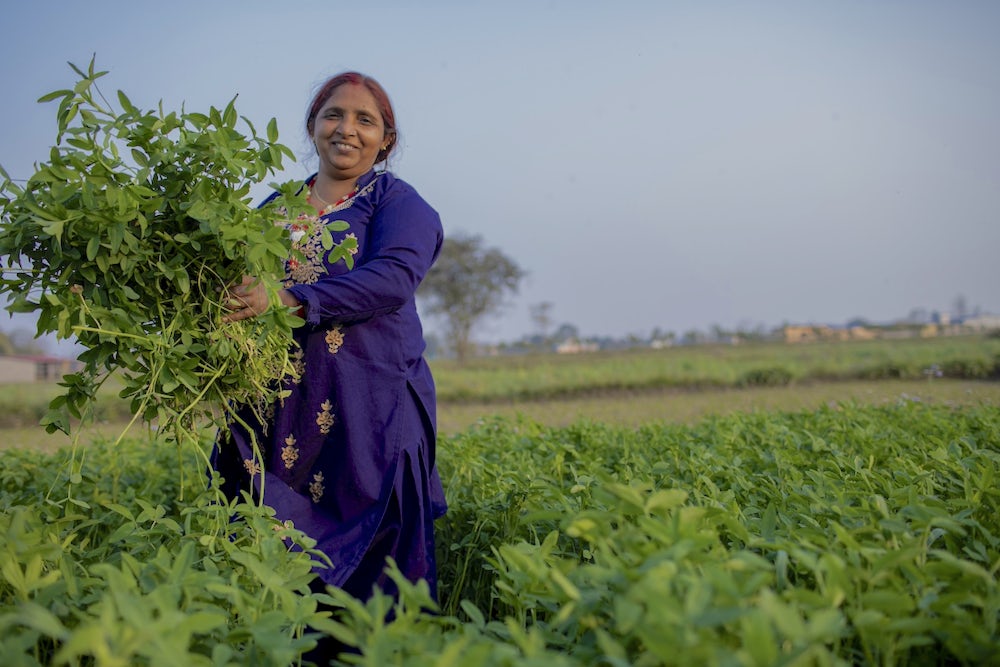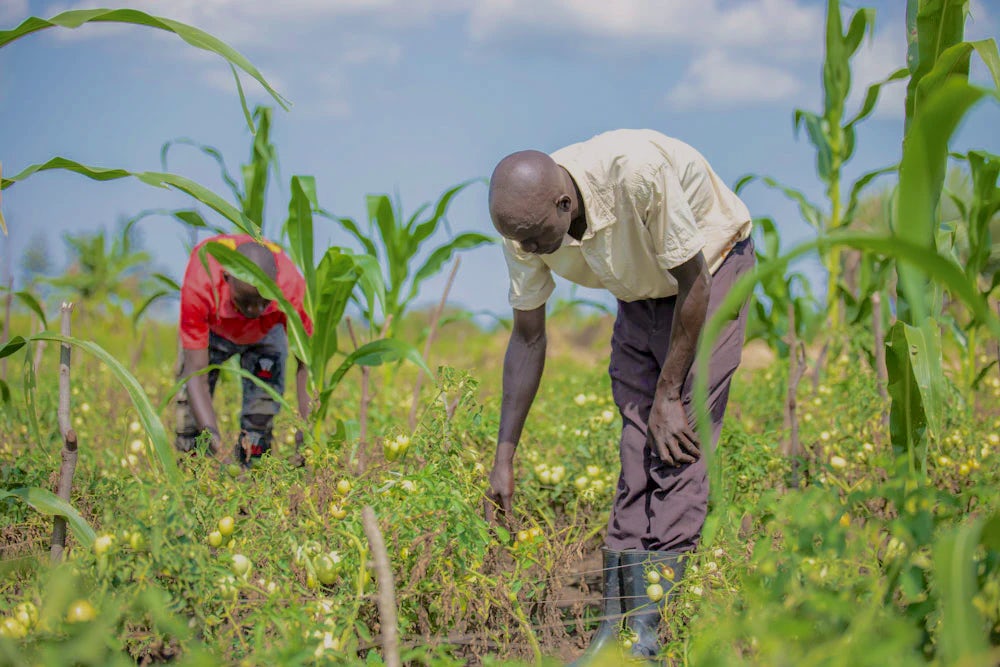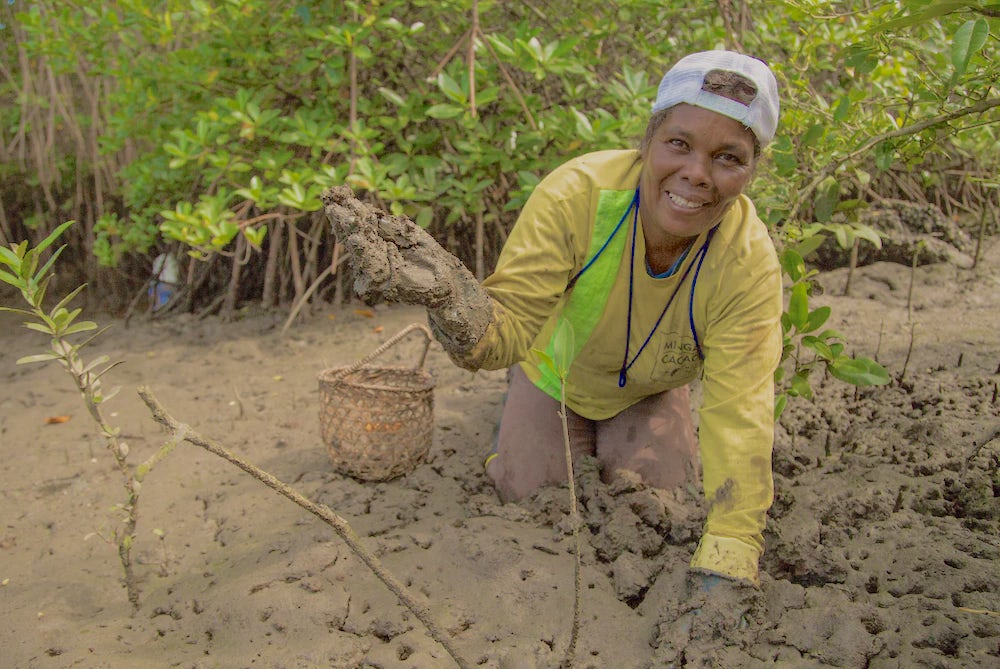The effects of climate change pose urgent challenges to the sustainability and stability of human societies and natural environments around the world. As weather conditions become more extreme and unpredictable, it is critical to boost investments in adaptation mechanisms for farmers — even as we pursue mitigation in an agriculture sector that produces about one third of total anthropogenic greenhouse gas (GHG) emissions.

Heifer International helps smallholder farmers integrate low-cost sustainable farming methods that are climate-smart and environmentally friendly. Through our programs, we have shown that caring for the Earth can go hand in hand with increasing farmers’ food production and improving their livelihoods. With the right tools and training, smallholder farmers can thrive and help protect the planet.
The UN Conference of the Parties (COP) is the apex decision-making body of the UN Framework Convention of Climate Change (UNCFFF), which was created in 1992 to both assess and address the growing threat of climate change to human societies and the natural environment. The COP28 meeting is being held in Dubai, United Arab Emirates from November 30 to December 12.
While much of the focus of the talks is on ways to curtail production of greenhouse gas (GHG) emissions – known as mitigation efforts – there has been increased acknowledgment of the urgent need to invest in adaptation efforts. A staggering 3.6 billion people around the world are highly vulnerable to the impacts of climate change, which include flooding, droughts, heat stress and rising food insecurity.
COP organizers are also emphasizing that innovation in traditional agricultural practices has a major role to play in “responding to the realities of climate change and upgrading food systems.”
Heifer participates in COP meetings to amplify the voices of smallholder farming communities and work with coalitions to advocate for more investment in adaptation programs tailored to the hundreds of millions of smallholder households in low- and middle-income countries, whose day-to-day existence depends on what they can grow and raise on small plots of land.
Heifer is a member of the Advancing Livestock for Climate (Alive4Climate) coalition, which is hosting a full day of sessions on Dec. 6 in the Food Systems Pavilion, focused on “amplifying the needs and voices of small-scale food producers and pastoralists.” Learn more
All sessions where Heifer staff are confirmed speakers so far:
This Heifer brief describes how our Caring for the Earth approach integrates adaptive and regenerative agricultural methods in our programs that allow farmers to enrich soils, preserve forests and other farm-adjacent ecosystems, and reduce food and feed waste.
Here a few examples in the Brief from Heifer programs across Africa, Asia and the Americas:

In Nepal, a recent study with the Alliance of Bioversity International and The International Center for Tropical Agriculture (CIAT) showed that adoption of climate-smart goat farming practices by Heifer-supported cooperatives allowed farmers to lower their intensity of land use by 80 percent, water use by more than 90 percent and GHG emissions by 78 percent.

In Nigeria, Heifer partnered with Pula Advisors, Olam Agri, Thrive Agric and Leadway Assurance Limited to create the Pay-at-Harvest Area Yield Index Insurance (AYII) policy, allowing rice and maize farmers to reduce climate-related crop loss risks while bolstering investor confidence in the farming sector.

In Ecuador’s ecologically rich but fragile mangrove forests, Heifer partners with local governments and communities to establish a system whereby the communities form cooperatives that protect swaths of the mangrove forests in exchange for the right to collect shellfish. These collectors have reforested more than 50 hectares of mangroves to date.
Everyone on the planet feels the effects of climate change, but the climate crisis is especially impactful on agriculture and the world’s smallholder farmers.
Read More About How Does Climate Change Affect Agriculture?On the heels of extreme flooding that devastated farmland in Nigeria, Heifer’s pay-at-harvest crop insurance program is reducing the vulnerability of farmers across the country.
Read More About De-risking Nigeria’s Climate Threatened FarmlandsHeifer International advances Sustainable Livestock as part of our integrated, market-based model for strengthening smallholder households’ economic and climate resilience. This document outlines our Sustainable Livestock approach.
View PDF About Advancing Sustainable Livestock To Benefit Smallholder FarmersThis fact sheet explains Heifer’s locally led development approach, defines sustainable locally led development, and discusses why this approach is important.
Download Fact Sheet About Sustainable Locally Led Development Fact Sheet


